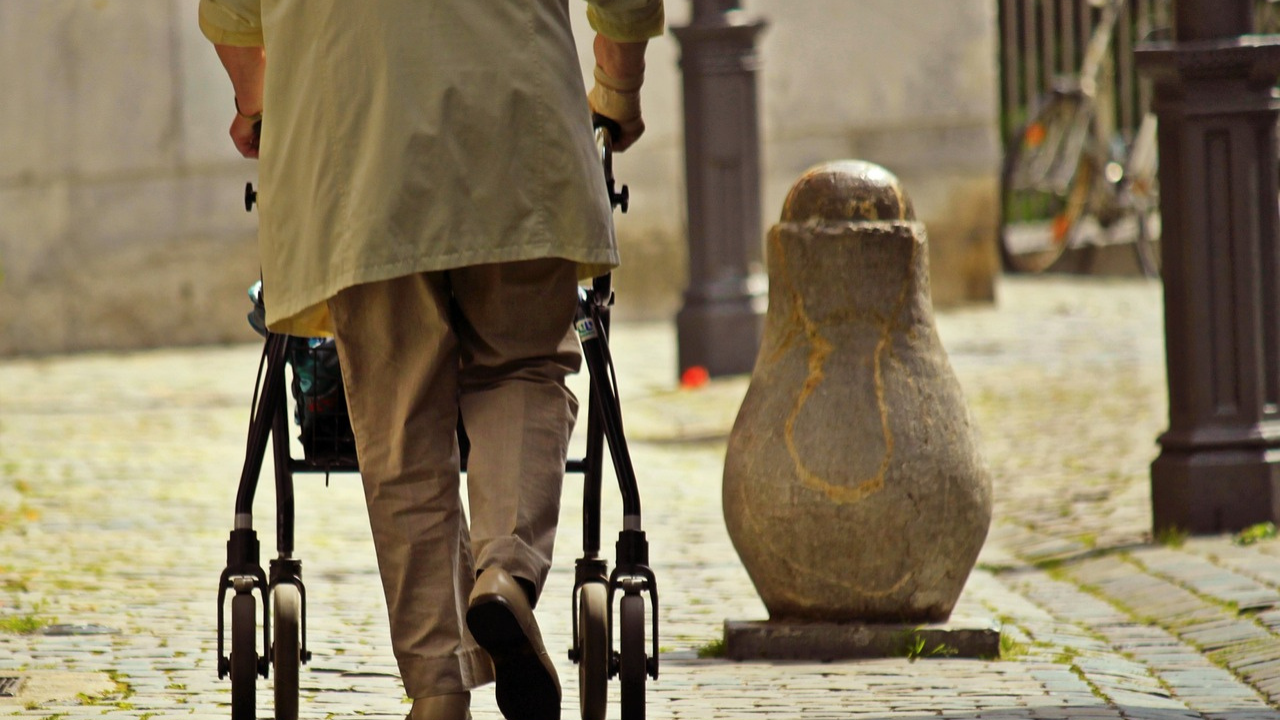How to Choose the Right Walker for Your Aging Parent
How to Choose the Right Walker for Your Aging Parent
As our parents grow older, one of the most important aspects of their well-being becomes ensuring they can move safely and with confidence. For many aging individuals, mobility issues are a common concern, whether due to arthritis, balance issues, or a decline in strength. A walker can provide the necessary support to help maintain independence, improve balance, and reduce the risk of falls.
Choosing the right walker for your aging parent, however, is not always straightforward. It requires careful consideration of their specific needs, physical condition, and environment. In this article, we will explore how to choose the best walker for your aging parent, making sure it provides the support they need without compromising their comfort and dignity.
Understanding the Different Types of Walkers
Before deciding which walker is best for your aging parent, it’s important to understand the various types available. Each walker is designed with different features to accommodate specific mobility needs. For seniors who need basic support and stability, a traditional walker with four legs may suffice. These walkers are simple and lightweight, providing extra support for balance without much complexity. However, while traditional walkers are effective, they require the user to lift the device with each step, which can be tiring and difficult for those with limited upper body strength.
On the other hand, if your parent requires more mobility and comfort, a rolling walker—often referred to as a rollator—might be a better option. Rollators come with four wheels, allowing for easier movement without needing to lift the walker with each step. Most rollators also include features like hand brakes and a built-in seat, which offers both convenience and safety. The ability to sit down when needed can make a significant difference in your parent’s comfort, especially if they tire easily or experience discomfort during walks.
Choosing between a traditional walker and a rollator depends largely on your parent’s physical abilities and how they plan to use the walker. For seniors with limited strength or endurance, a rollator with four wheels may be a more suitable option. For others who need maximum stability and have good upper body strength, a traditional walker may provide the necessary support.
Considering the Size, Weight, and Portability
When choosing a walker for your aging parent, size and weight are crucial factors to consider. Walkers come in different sizes and designs, so it’s important to select one that fits your parent’s frame and can be easily maneuvered. A walker that is too large may make it difficult for your parent to use it comfortably, while one that is too small may not provide sufficient support. Measure your parent’s height and ensure the walker is adjustable to provide the most comfortable fit. The handles should be at waist height when your parent is standing, allowing them to hold the walker with their arms slightly bent for maximum comfort.
Weight is another essential consideration. A walker that is too heavy can make it more challenging for your parent to lift, maneuver, or transport. Conversely, a lightweight walker may be easier to handle but may not provide as much stability or durability. Find a balance that suits your parent’s strength and needs. Some walkers are made from lightweight materials like aluminum, which offer a good balance between portability and strength.
Portability is especially important if your parent plans to use the walker outside the home or travel with it. Some walkers can be folded easily, making them more convenient for transport. Walkers that fold into a compact size are ideal for seniors who travel frequently or need to store the walker in tight spaces. If your parent has a car and frequently goes on outings, a foldable model can ensure that they always have the support they need wherever they go.
Assessing Special Features for Added Comfort and Safety
While the basic function of a walker is to support balance and provide stability, additional features can enhance both comfort and safety for your parent. One of the most important features to consider is the handlebar height and comfort. Ergonomically designed handles can reduce strain on the hands and wrists, which is particularly important for seniors with arthritis or joint pain. Some walkers offer cushioned grips, which can make a significant difference during longer walks.
Another feature to look for is a walker with a seat. Many rollators come with an attached seat that can be used as a resting place. If your parent tires easily, having a place to sit down can provide much-needed relief during outings. Some walkers also offer a storage basket or pouch, which allows your parent to carry essential items such as a water bottle, medication, or personal belongings while maintaining their independence.
Safety features, such as built-in hand brakes, are also important to consider. A rollator with hand brakes allows your parent to control the speed and prevent the walker from rolling away when they are sitting or standing. These brakes can add an extra layer of security and confidence for both the user and their caregiver.
Understanding Your Parent’s Specific Needs
Ultimately, the right walker for your aging parent depends on their unique needs, preferences, and physical condition. If your parent is mainly using the walker indoors or in smaller spaces, a lightweight walker with a simple design may be sufficient. However, if they are using it for outdoor activities or longer walks, a rollator with larger wheels and a seat may be more appropriate.
Consider your parent’s level of strength and mobility when choosing a walker. Seniors with limited strength or dexterity may benefit from a walker with larger, more comfortable grips, or a rollator that requires less lifting. Additionally, if your parent experiences joint pain, a walker with shock-absorbing features or a cushioned seat can enhance comfort.
It’s also important to take into account any cognitive issues your parent may be dealing with. Seniors with dementia or Alzheimer’s may need a walker that is easy to use and won’t cause confusion. In these cases, a walker with simple features and minimal adjustments is ideal, as it will reduce frustration and ensure the walker remains an effective tool for maintaining independence.
Seeking Professional Advice
Before making a final decision, it’s always wise to consult with a healthcare professional or physical therapist. They can assess your parent’s mobility and recommend the best walker based on their specific needs and health condition. A professional can also help determine whether any additional equipment, such as a brace or a specific type of cushion, might be beneficial.
Your parent’s comfort, safety, and quality of life should be the primary focus when choosing a walker. Take the time to assess their needs and preferences, and don’t hesitate to seek professional advice to ensure the walker you select provides the optimal support they need to maintain their independence and mobility.
Conclusion
Choosing the right walker for your aging parent is more than just picking a mobility aid; it’s about ensuring that they can continue to live independently, with dignity and safety. Whether you choose a traditional walker or a rollator depends on their specific needs, but the key is finding a solution that complements their lifestyle.
By considering factors such as size, weight, special features, and your parent’s unique mobility needs, you can select a walker that helps them move confidently and comfortably through their day-to-day life. With the right walker, your parent can maintain the independence they cherish, while also improving their overall safety and well-being.

